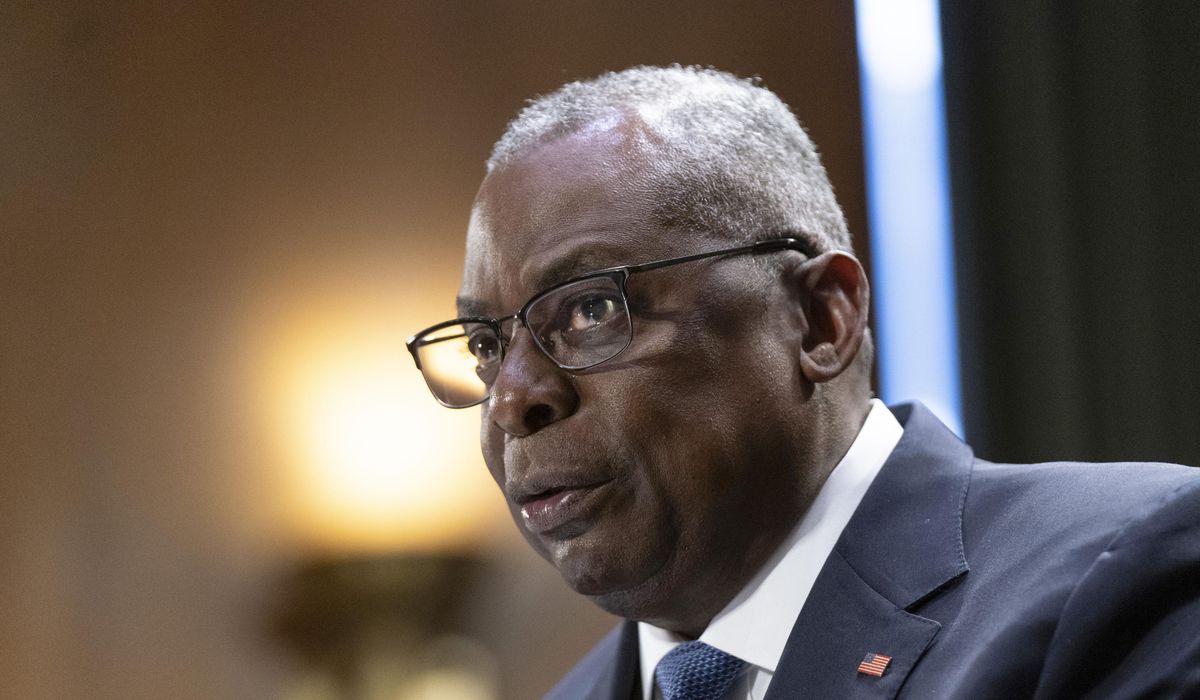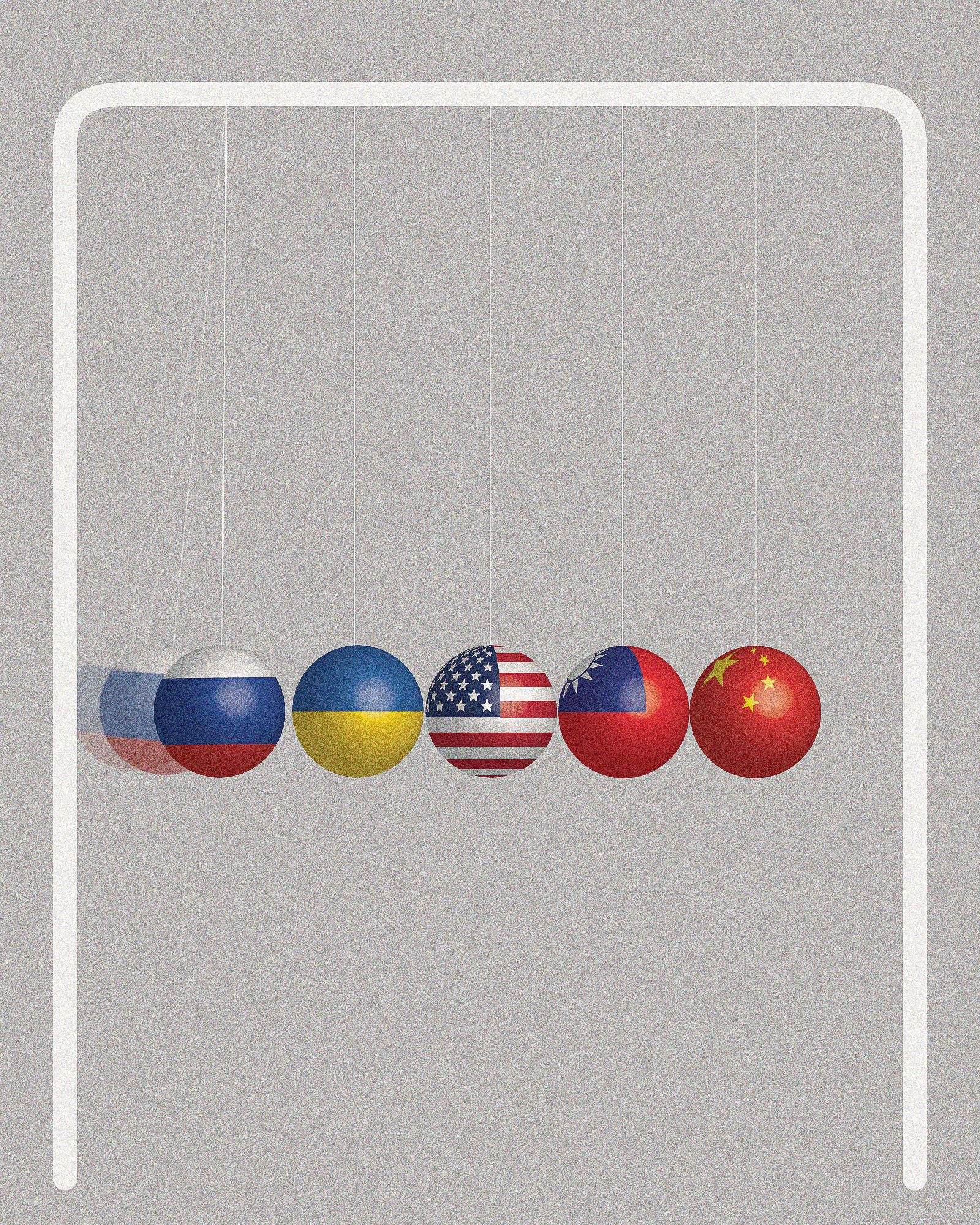


Welcome to Threat Status, our weekly roundup of the biggest news inside the Pentagon, on the southern border, and around the world. Sign up to receive Threat Status each week from a national security reporting team headed by veteran Washington Times journalists Ben Wolfgang and Guy Taylor.
Has America’s intelligence community been infected by political bias? That’s the contention of John Gentry, a U.S. intel veteran who argues objectivity is rapidly fading at the highest levels of America’s secretive spy agencies.
National Security Correspondent Bill Gertz assesses Mr. Gentry’s new book, which argues current and former American intelligence officials fell victim to leftist policies of the Obama era and waged political warfare against then-candidate Donald Trump in 2016. The accusations point to systemic problems that carry major implications for U.S. national security.
Drift toward war with Iran?
Well-functioning intelligence and national security infrastructures are as important as ever, given what many analysts see as a steady drift toward war between the U.S. and Iran.
Mr. Wolfgang is tracking the latest across the chaotic Middle East, including a Christmas Day drone attack in Iraq by the Shiite militia Kataib Hezbollah, a group with direct links to Iran’s Islamic Revolutionary Guard Corps. Three American troops were injured in the attack, which prompted a major U.S. military response in the form of deadly airstrikes targeting militia positions in Iraq.
In the Red Sea, the U.S. and its allies are grappling with the emboldened and brazen Houthi rebels, another outfit backed by Tehran. Houthi drones struck an oil tanker there and also targeted an American warship in the region, the latest in a series of clashes between the U.S. and the Houthis.
The Biden administration is under pressure to respond more forcefully to Iran and its proxies. Military correspondent Mike Glenn is monitoring the Pentagon’s creation of Operation Prosperity Guardian, a maritime coalition aimed at thwarting Houthi attacks. It’s unclear how successful the initiative will be, as some of America’s closest allies are sending only a few military personnel rather than contributing ships or other badly needed resources.
A somber Christmas
Elsewhere in the Middle East, it was a somber Christmas in Bethlehem, where many traditional holiday ceremonies were canceled amid the ongoing Israel-Hamas war. Israeli forces pushed ahead in Gaza over Christmas weekend despite growing calls from international organizations — and behind-the-scenes pressure from the Biden administration — to wind down the military operation.
Other U.S. allies also faced a tense holiday. In Ukraine, there are mounting signs that the tide of the war has turned in Moscow’s favor, with Russian President Vladimir Putin projecting confidence and Ukrainian President Volodymyr Zelenskyy pleading with the West for more aid. The ongoing war is straining the U.S. as well. Washington has announced it will purchase Patriot missiles from Japan. It’s a major shift from Tokyo‘s post-World War II policy against weapons exports, but one that will help the U.S. restock its own dwindling inventories.
Reset button?
It had been nearly a year since the heads of the U.S. and Chinese militaries spoke directly. But that changed last week, as U.S. Joints Chiefs of Staff Chairman Gen. Charles Q. Brown Jr. spoke to his Chinese counterpart via video conference. The restoration of military-to-military comms is perhaps the most tangible benefit to come from President Biden’s recent meeting with Chinese President Xi Jinping and could be a sign 2024 will bring a thawing between the two powers.
Or things could get worse. Mr. Gertz examines a troubling aspect of China’s military build-up: The creation of advanced psychological warfare and brain-influencing weapons. China and its partners also have designs in interfering in U.S. elections. The Times’ Ryan Lovelace has a troubling report on how China, Russia and Iran all tried to meddle in the 2022 midterms.
China is making moves on the diplomatic front, too. As the U.S. tries to shore up its own Pacific alliance, Asia Editor Andrew Salmon has a fascinating look at Beijing’s concerted effort to look farther afield for allies, including to Vietnam and North Korea.
On the border
A tidal wave of criticism is hitting the White House over its disastrous border policy. House Speaker Mike Johnson dubbed the situation at the U.S.-Mexico border an “unspeakable human tragedy” amid a seemingly unstoppable migrant surge.
And it could actually be hurting Democrats’ other top policy priorities. The Times’ Stephen Dinan reports on how Mr. Biden’s migrant surge is taking a toll on police, schools, and social services — and is contributing to global warming.
Opinion front
Insecurity at the U.S.-Mexico border is hardly the only territorial issue plaguing the world today. Richard W. Rahn, senior fellow at the Cato Institute and chairman of the Institute for Global Economic Growth, argues that from Europe to Asia to the Middle East, border disputes and fights over which nations own what have become a permanent part of our existence.
With regard to Mr. Biden’s restrained reaction to Iranian proxy attacks on U.S. forces in the Middle East, The Times’ Editorial Board argues that the president is reluctant to hit back hard because of his “progressive” globalism, which clings to the illusory notion that diminishing U.S. superpower status is the key to melding nations into a borderless world of peace.
Thanks for reading Threat Status. Don’t forget to sign up here and get it delivered to your inbox each week. And if you’ve got questions, Ben Wolfgang and Guy Taylor are here to answer them.





